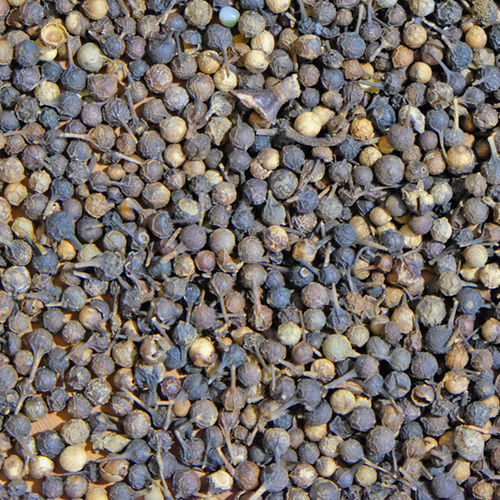
Background
People use cubebs for parasitic infections, bacterial infections, diarrhea, gonorrhea, enlarged prostate (benign prostatic hyperplasia or BPH), cancer, and many other conditions, but there is no good scientific evidence to support these uses.
In foods, cubebs oil is used as a flavoring ingredient.
Safety Safety definitions
Special Precautions & Warnings:
Pregnancy and breast-feeding: There isn't enough reliable information to know if cubebs is safe to use when pregnant or breast-feeding. Stay on the safe side and avoid use.Infection or swelling (inflammation) of the stomach or intestines (gastrointestinal tract, GI tract): Cubebs might irritate the GI tract. Don't use it if you have a stomach or intestinal problem.
Kidney disease (nephritis): Cubebs might irritate the kidneys. Don't use cubebs if you have kidney disease.
Effectiveness
- Increasing urination.
- Amoebic dysentery.
- Bacterial infections.
- Intestinal gas (flatulence).
- Diarrhea.
- Gonorrhea.
- Enlarged prostate (benign prostatic hyperplasia, BPH).
- Cancer.
- Loosening mucus.
- Reducing swelling.
- Other conditions.
Dosing & administration
Interactions with pharmaceuticals
Antacids
Interaction Rating=Minor Be watchful with this combination.
Antacids are used to neutralize stomach acid. Cubebs may increase stomach acid. By increasing stomach acid, cubebs might decrease the effectiveness of antacids.
Some antacids include calcium carbonate (Tums, others), dihydroxyaluminum sodium carbonate (Rolaids, others), magaldrate (Riopan), magnesium sulfate (Bilagog), aluminum hydroxide (Amphojel), and others.
Medications changed by the liver (Cytochrome P450 3A4 (CYP3A4) substrates)
Interaction Rating=Moderate Be cautious with this combination.
Some medications are changed and broken down by the liver. Cubebs might decrease how quickly the liver breaks down some medications. Taking cubebs along with some medications might increase the effects and side effects of some medications. Before taking cubebs, talk to your healthcare provider if you are taking any medications that are changed by the liver.
Some medications changed by the liver include lovastatin (Mevacor), clarithromycin (Biaxin), cyclosporine (Neoral, Sandimmune), diltiazem (Cardizem), estrogens, indinavir (Crixivan), triazolam (Halcion), and many others.
Medications that decrease stomach acid (H2-blockers)
Interaction Rating=Minor Be watchful with this combination.
Cubebs might increase stomach acid. By increasing stomach acid, cubebs might decrease the effectiveness of some medications that decrease stomach acid, called H2-blockers.
Some medications that decrease stomach acid include cimetidine (Tagamet), ranitidine (Zantac), nizatidine (Axid), and famotidine (Pepcid).
Medications that decrease stomach acid (Proton pump inhibitors)
Interaction Rating=Minor Be watchful with this combination.
Cubebs might increase stomach acid. By increasing stomach acid, cubebs might decrease the effectiveness of medications that are used to decrease stomach acid called proton pump inhibitors.
Some medications that decrease stomach acid include omeprazole (Prilosec), lansoprazole (Prevacid), rabeprazole (Aciphex), pantoprazole (Protonix), and esomeprazole (Nexium).




